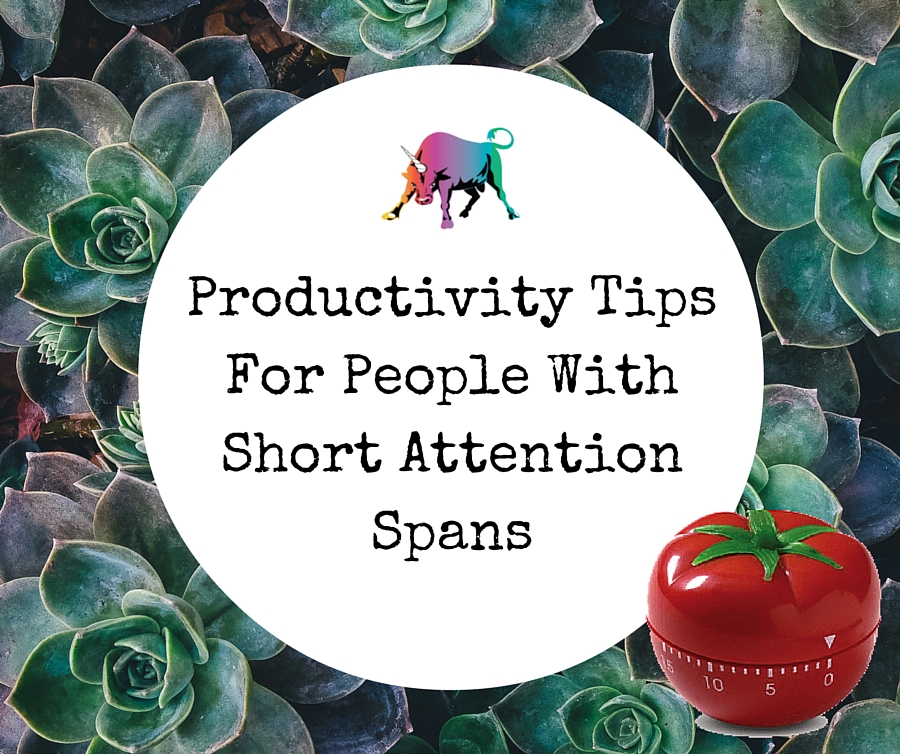
This article is more than ten years old. It originally ran on a now-defunct website called The Gloss, where Bullish got its start. This post was created entirely by humans, as AI didn’t exist back then (but also: why would you want to read something no one could be bothered to write?) For more recent posts, try here.
Having trouble concentrating long enough to really get things done?
There are totally solutions for that.
It occurred to me to write this column when I read a friend’s Facebook status update: “Just completed my third pomodoro!” Um … like the pasta? I Googled. It turns out that there is something called the Pomodoro Technique.
According to the website, “The Pomodoro Technique™ has been used successfully by many different kinds of people doing all sorts of activities: from software developers to schoolchildren; from university students to lawyers and executives; whether organizing events, doing project management or getting homework done on time.”
“Pomodoro” is, in fact, the Italian word for “tomato.” The technique arose when its founder was having trouble studying for long periods of time, and happened upon the idea of using his grandmother’s kitchen timer, which was shaped like a tomato. (You can now purchase just such a timer from the website, along with a T-shirt and a special to-do list notepad!) Linguistic note: “pomodoro” refers both to the timer and to the 25-minute work periods. Hence, “I completed three pomodoros before I accidentally dropped my pomodoro in the sink.”
If you want to learn more about this, have a blast: here’s the free ebook, which goes into way more detail than you need. I pretty much gave it away already. But the ebook will cover such earth-shattering circumstances as getting interrupted during your pomodoro! (“Read all about how to deal with interruptions in the The Pomodoro Technique™ book, including ‘Protecting the Pomodoro’, ‘Voiding the Pomodoro’, and keeping track of interrupted Pomodoros.”)
Allow me to say it: you should not need a kitchen timer shaped like a tomato in order to work for 25 minutes without stopping.
What’s next? I will invent a timer shaped like a cherry tomato for Generation Z, who will need this device to work for 10 minutes without stopping. Then, for Generation AA (like the training bra!), people born between 2015 and 2028, I will invent a timer shaped like a single lentil, although a holographic one, which will help its users concentrate for up to thirty seconds at a time; at that point, in my dotage, I will also introduce the concept of Single-TaskingTM, which will be regarded as potentially revolutionary, but completely unrealistic. Oh, brave new world!
But seriously, what if you need a kitchen timer to concentrate? Hrrm. Here are some ideas (other than a kitchen timer).
Meditation. Rick Hanson, Ph.D., co-author of Buddha’s Brain: The Practical Neuroscience of Happiness, Love & Wisdom, said in the current Brain World magazine that people who meditate routinely “have measurably thicker brain layers in two critical regions. One region handles the executive control of attention and executive control in general. The benefit of that is you’ve got more control over your attention and are less distractible, you don’t get so tired when you’re trying to read or pay attention in a meeting.”
The idea of meditating makes me want to punch someone, but if everyone were like me, the world would be unable to function due to all the punching. So you might try meditating! I think it would be helpful to try meditating, initially, with some professional assistance or other people who meditate, so you don’t just … stop. (Or you could set your tomato-timer!) The somewhat disingenuously named Center for Leadership Performance near Wall Street offers transcendental meditation specifically focused on business, and has free introductory sessions all the time (and you may run into David Lynch!)
Internet Regulation. I realized that I spend a lot of time screwing around on the internet, like reading articles about whether British celebrities’ footballer husbands are cheating on them. So, when I need to buckle down for a week or two to get something done, I enforce the following rules:
– Visit your time-wasting site, but either set a timer, or else say: I’m going to pick the three most interesting headlines before I start reading, and then just read those three articles. If I see anything else interesting in the sidebar, I can save the link to be one of tomorrow’s three articles.
– If something stupid, boring, or unproductive is on your screen, just shut the computer (assuming it’s a laptop). Just physically shut it, now. Once it’s shut, look at something else, and think about whether there’s anything else that actually needs to get accomplished on the internet. Make a list. Then open back up, close out the stupid, boring, unproductive thing, and do only the things on the list.
– Put the laptop somewhere. You know how some families keep the TV in a cabinet, and even lock the cabinet so the kids can’t watch more than a certain number of hours of television a day? That sounds like a nice thing to do if you have kids and nice furniture. Well, the internet has become a lot more like television over the last decade. What most people do when they’re fucking around online is in no way morally superior to what most people do slumped in front of the idiot box. So, put your laptop in a cabinet or drawer when you go to bed. When you wake up in the morning, you’ll have to actually consciously decide to start using your computer, rather than just dumping yourself bleary-eyed in front of your inbox and getting sucked into other people’s priorities.
Email Management. Plenty of productivity experts have covered how to manage and cut down on email itself. Try these:
10 Steps to Become an Email Ninja (“Ask yourself, ‘What’s the worst that will happen if I delete this?’”)
How to Stop Checking Email on the Evenings and Weekends (“Several global firms in Zurich don’t allow their bankers to check email more than twice per day. The reason is simple: the more they check email, the more compelled they feel to send email.”)
However, don’t use these techniques to become an email asshole by spamming everyone with your autoresponder. You know how annoying it is to constantly tell people you don’t have a television? It’s just as annoying to brag, “I only check my email twice a day.” More annoying, actually, because you’re sort of saying, “I’ll get back to you when I feel like it, peon.”
Finally, just as exercising effectively involves progressive resistance — constantly changing your workout and making it more difficult — concentration, too, can be built over time. I’m sure the pomodoro-scientists have some voodoo reason for why 25 minutes is special. But if this technique had been invented in 410 AD to help St. Augustine finish up City of God, I think it would’ve been more like four hours. So maybe, for you, it’s 25 minutes today, 35 minutes next month, etc. I was raised in a household where no one made me do my homework at any particular time, or at all, so I’m a firm believer that these skills can be adopted and honed later in life. Maybe you can go from being an email ninja to being whatever is cooler than a ninja. (Potential column topic: How to Be a Productivity Unicorn!)









